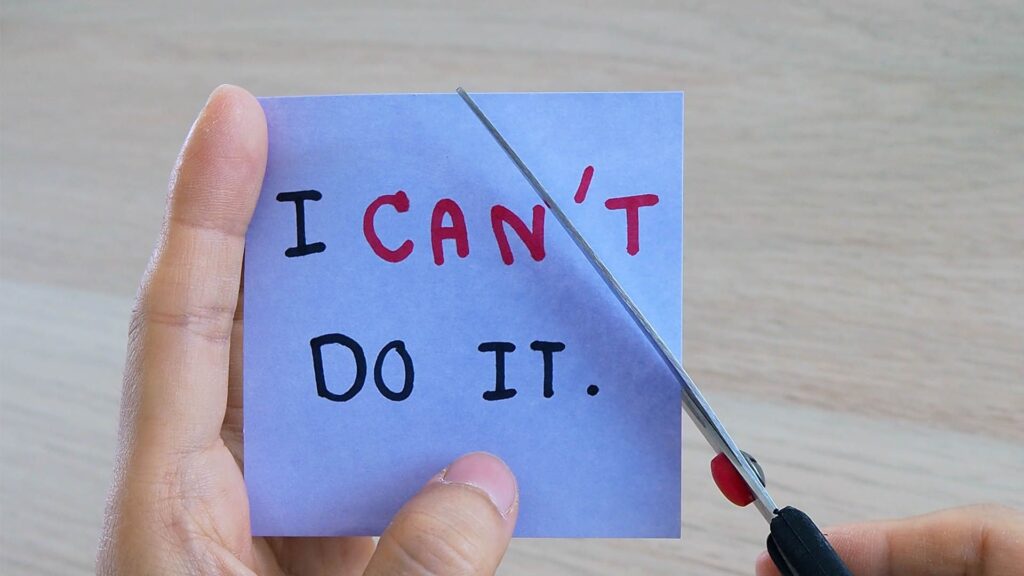
Confidence can feel elusive for those plagued by self-doubt; though this sort of self-assurance might come naturally to some, it’s a learnable trait for those who want to grow their confidence. Learn how to be more confident.
What Is Confidence?
Confidence means having a positive self-image and healthy sense of self-worth. In practice, this can mean feeling at ease in social situations, being unafraid of public speaking, or having positive thoughts about one’s life and personality. To be confident means to thoroughly know and embrace who you are and to be comfortable with your strengths and weaknesses alike.
Why Become More Confident?
Research shows that building self-confidence can lead to a greater sense of overall mental health and wellness, as well as more success in many different avenues of life. Overcoming low-confidence issues can help you achieve your goals in both your professional and personal life. Confident people often find greater success as entrepreneurs or employees as their abiding sense of self-worth helps them achieve their goals. On an interpersonal level, when you learn to love and accept yourself, it can be easier for other people to do the same.
8 Tips for How to Be More Confident

Becoming more confident is a process, so it’s important to have grace for yourself as you learn to have more faith in yourself. Follow these eight tips to gain confidence:
1. Be kind to yourself. Do your best to accept yourself just as you are in the present. Everyone has some things they might want to improve about themselves, but it’s much easier to do that when you already love who you are. Self-improvement becomes more like helping a friend than chastising an enemy at that point. For instance, if you’re dealing with body image issues, prioritize self-acceptance above a new diet. You’ll build confidence levels faster starting from where you are rather than where you want to be.
2. Get outside your comfort zone. The more you venture outside of your comfort zone, the more opportunities you’ll have to develop confidence in yourself. If you’re suffering from a lack of self-confidence, the last thing you might want is to put yourself in an uncomfortable situation, so take baby steps to the best of your ability. It’s normal to feel self-conscious as you begin to stretch yourself, and you might feel a bit awkward as you try new things you used to fear. Each time you face your fears, you’ll become a little more certain you can handle all life will throw at you.
3. Make a list of positive qualities. Sit down and try to make a list of times you felt good about yourself or qualities you appreciate about your personality. You might think there are only negative things to say about yourself if you’re struggling with low self-esteem, but perhaps there’s a first time for everything. As you get going, you might realize you’re fonder of yourself than you think.
4. Practice self-assured body language. Sometimes you have to fake it until you make it to build self-confidence, and adopting confident body language can really help on this front. Stand up straight with your shoulders back. Practice power poses—stances where you puff yourself up as if there’s nothing in the world that can intimidate you. Do your best to maintain eye contact while people talk to you. Give yourself a break if you ever deviate from these practices and remember that this is all a learning experience.

5. Realize you’re not alone. A lack of confidence can make you feel very lonely, but the truth is that many people struggle with confidence issues, including many whom you’d never guess would. Reach out to friends or family to see if they’ve ever felt uncomfortable or uncertain about themselves. You might be able to boost their well-being as well. As you grow more confident in yourself, you might be able to offer some meaningful self-care tips to someone else just starting on this journey one day.
6. Set goals for yourself. Combat self-doubt in small doses by choosing daily or weekly tasks to challenge yourself and improve your confidence in specific areas. Maybe you can focus on talking to people you don’t know one week and on standing up for yourself with people you do the next. The key is to make these goals seem non-intimidating and manageable. As you achieve one after the next, set larger ones and take a step back to realize you’re becoming more and more confident one step after the other.
7. Take it one day at a time. Even the most self-assured and successful people lapse into self-critical thoughts and doubt themselves, so avoid beating yourself up for having bad days. It’s okay to feel let down or unable to meet the challenges of life occasionally.
8. Talk to yourself positively. When you notice yourself drifting into negative thoughts, be mindful of them. Ask yourself why they might be arising in the first place. Divert them into positive self-talk as soon as you feel able. Supplement this practice by listening to personal development podcasts or reading books about positive psychology. Moving past low self-confidence means dispensing with negative self-talk and replacing it with positive affirmations.




























